With rising temperatures, fluctuating rainfall patterns, escalating flooding, drought and desertification, the global impact of climate change has been quite immense. The devastating effects of these unexpected weather conditions have affected water security globally. For instance, the rise in temperature, variations in rainfall and decline in precipitation have led to the evaporation of surface lakes and rivers.
Lake Chad is a good example. Once one of Africa’s largest freshwater lake, and a source of livelihood for millions of people as a livestock, agriculture and fishing hub, in fifty years, the lake has shrunk to about a tenth of its size and this is partly due to the rise in temperature and reduced rainfall. As a result, farmers have reduced access to arable lands, fishermen can no longer fish effectively, and livestock cannot feed adequately.
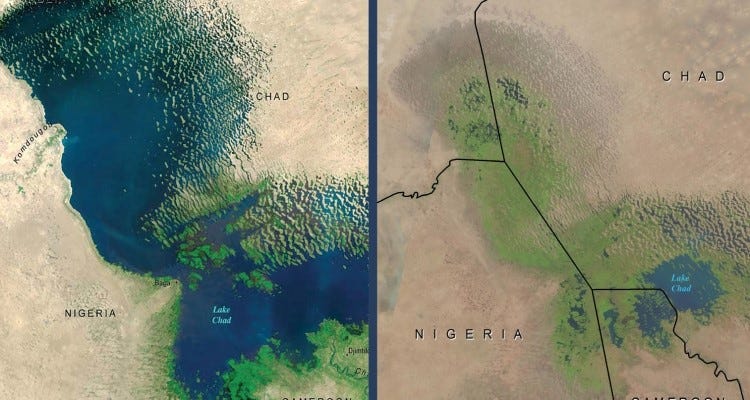
Making the Invisible visible
The theme for this year’s World Water Day is Groundwater, Making the Invisible Visible, which aptly highlights underground water as a hidden treasure which can be utilised to augment shrinking surface water. It also advocates for the need to work together to sustainably manage this precious resource.
In Nigeria, groundwater is already being used at home, in factories and farms. The 2019 Water, Sanitation and Hygiene National Outcome Routine Mapping Survey (WASH NORM) Report revealed that the most common sources of drinking water in Nigeria were boreholes/tube wells, used by 39% of the population. In addition, about a quarter of the population (24%) still depend on unimproved and surface water supply. This indicates the need for Nigeria to boost water supply and quality to ensure that every household, no matter their financial status, has equal access to clean water.
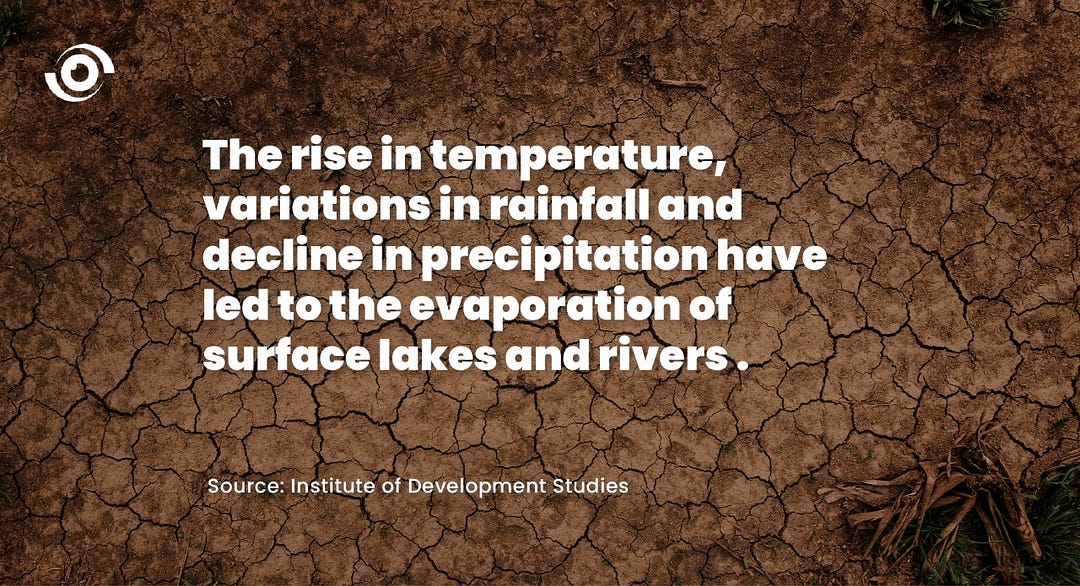
Sounding the alarm on climate change
Climate change puts people’s lives at risk by creating shortages of basic necessities, like food and water. The United Nations Water (UN-Water) has said that climate change is increasing water related disaster risks as, 90% of global disasters are water related, 40% of the world’s people are affected by water scarcity, and increased incidences of flooding threatens to destroy water points and sanitation facilities and contaminate water sources.
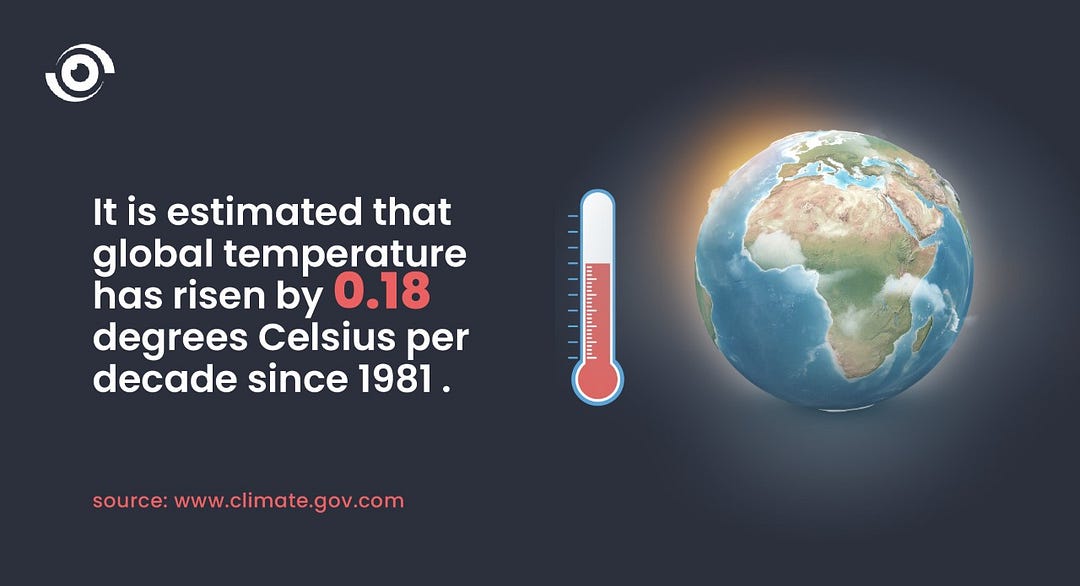
The reality is, when a population begins to find itself increasingly unable to safeguard water security — that is, ensure sustainable access to adequate quantities of acceptable quality water for sustaining livelihoods, human well-being, and socio-economic development; for ensuring protection against water-borne pollution and water-related disasters; and for preserving ecosystems in a climate of peace and political stability — then it’s time to sound the alarm.
Harnessing groundwater to ensure water security
Groundwater is not a new concept as an estimated 50% of the world’s urban population depends on underground water sources. It is however in the spotlight because of recent conversations around it, one of which is a new WaterAid report ‘Groundwater: The world’s neglected defence against climate change’, which describes it as the world’s insurance policy against climate change with the potential to save hundreds of thousands of lives.
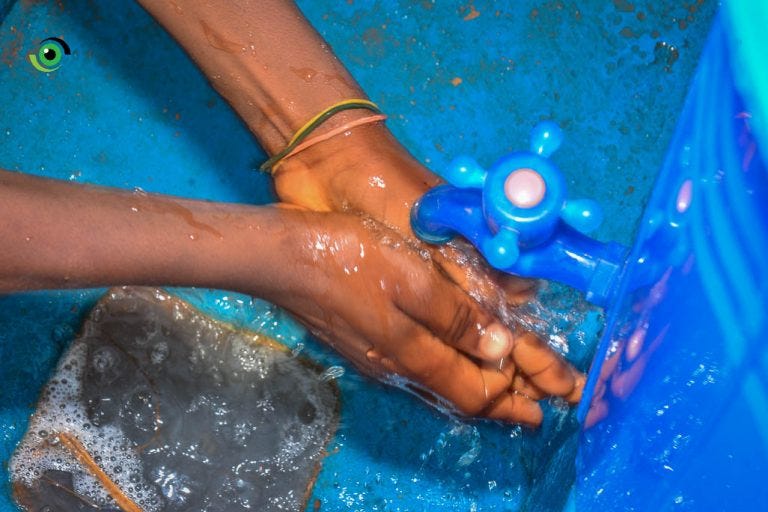
Groundwater exists almost everywhere underground and accounts for approximately 99% of all liquid freshwater on earth. Unlike surface water — rivers, streams and lakes which are readily available to be tapped — it must be extracted or pumped. However, because it is underground, groundwater is protected from the debilitating effects of climate change.
It has been estimated that there is enough groundwater under the continent of Africa for most countries to last at least five years of drought, and every country in sub-Saharan Africa, Nigeria inclusive, has enough groundwater to supply each person with 130 litres of water per day. It is therefore safe to say that Nigeria has enough groundwater to insulate herself from the threat of climate change on her rivers, streams, and lakes, and protect herself from the negative impact of drying farmlands, reduced farm produce and inadequate water for domestic activities among others. But how can the country fully maximise its groundwater?
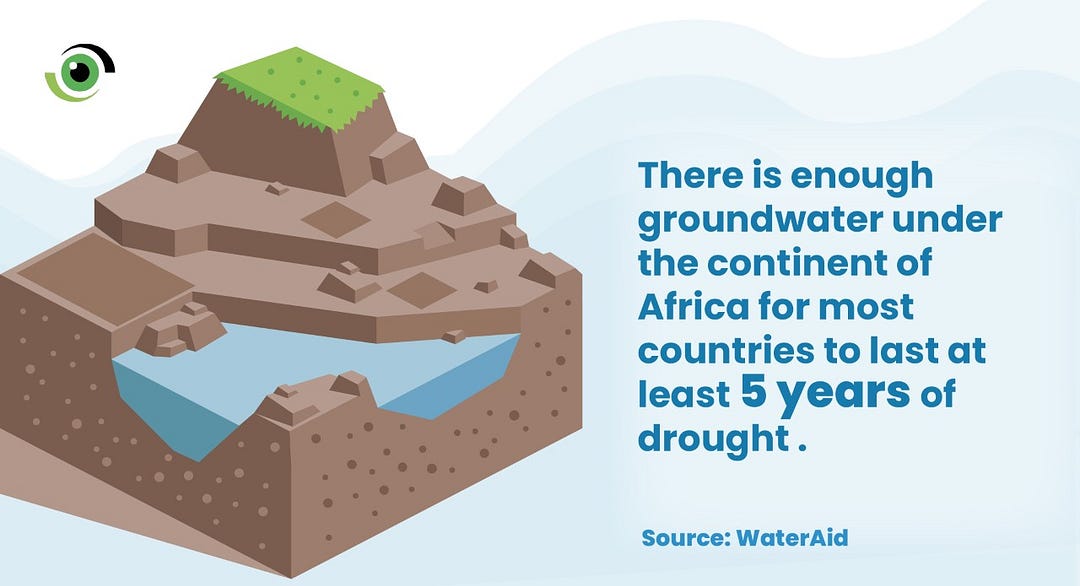
Effective regulations for groundwater access
As already established, Nigeria has enough groundwater reserves to meet her water needs. However, because this natural resource is often poorly understood, undervalued and mismanaged, the United Nations in its 2022 World Water Development Report (WWDR 2022), discusses the critical need for groundwater governance. These are the processes that enable groundwater management, planning and policy implementation. Because groundwater is connected to land ownership, and often treated as privately owned, regulation, governance and management are difficult. Governments need to fully assume their role as resource custodians in view of the common-good aspects of groundwater.
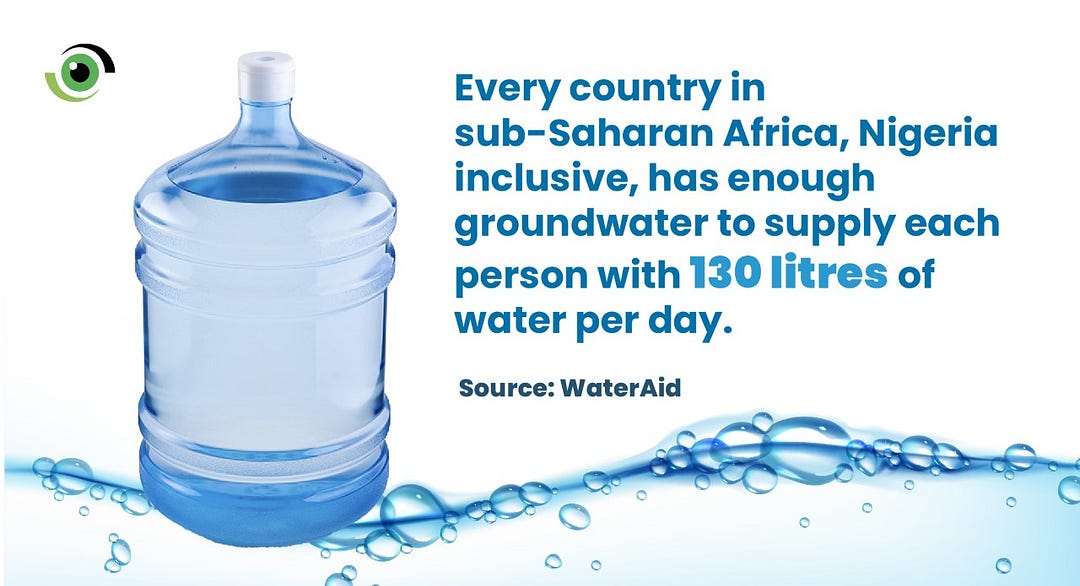
Nigeria needs to first grow citizen awareness and understanding of the enormous resource and economic potential of groundwater and how much of our entire wellbeing is dependent on it. There is little to no regulation on the use of groundwater in the country. For instance, the average cost for drilling a bore hole is about N600,000, a cost that a good number of households and farmers might be unable to afford. To make it affordable, government should consider regulating the drilling market.
Governments at all levels can also encourage and set processes in motion for farmers’ cooperatives to explore and manage their own ground water, through a larger and more regulated process to supply to more farms. Governments can also drill systems capable of extracting large volumes of groundwater and install bigger storage facilities in especially rural communities, to ensure that they have access to a safe and reliable source of water.
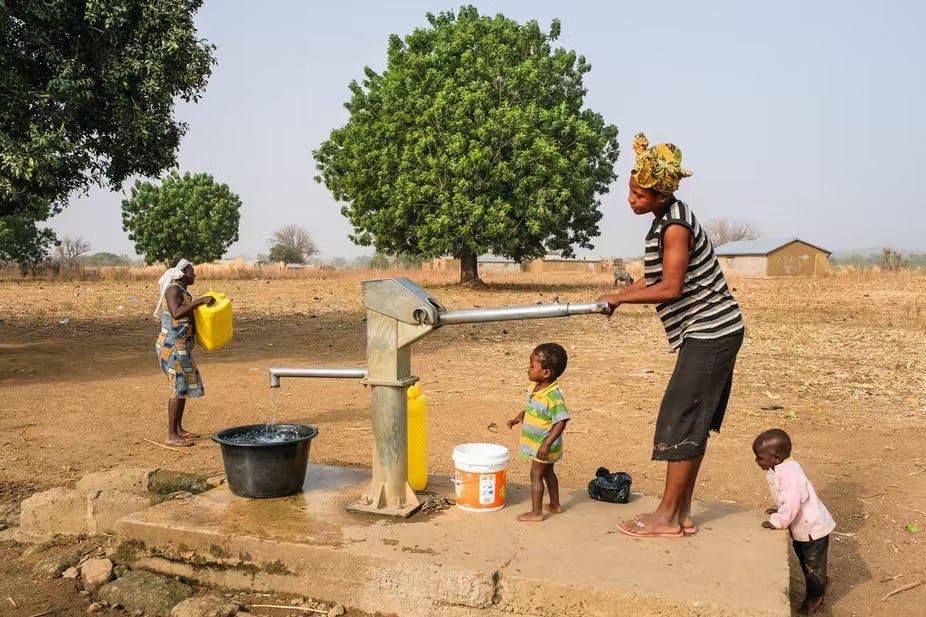
Protecting Nigeria’s water sources
Exploration of groundwater comes with its own negative consequences as well. These include the potential for contamination with underground solid chemicals which could be harmful for plants, animals, and people. There is also the potential erosion and mudslide, among others. These, however, could be prevented and managed with proper regulation from the authorities. Across the country, state ministries of water resources and agriculture could collaborate to establish and enforce processes, procedures, and guidelines for exploring groundwater for both farming and household use. The guidelines must be tailored to prevent over-exploration and protect the environment.
Further development of groundwater in Sub-Saharan Africa is hindered by a lack of investment, notably in infrastructure, institutions, trained professionals and knowledge of the resource. The Nigerian government should invest in its development as it could act as a catalyst for economic growth by improving agricultural yields and crop diversity.
Groundwater is truly liquid gold and if we can fully harness its vast potential, we could be able to bridge the nation’s water gaps and achieve better health and wellbeing of Nigerians, especially for women and girls who mostly bear the responsibility of supplying their family’s water needs.


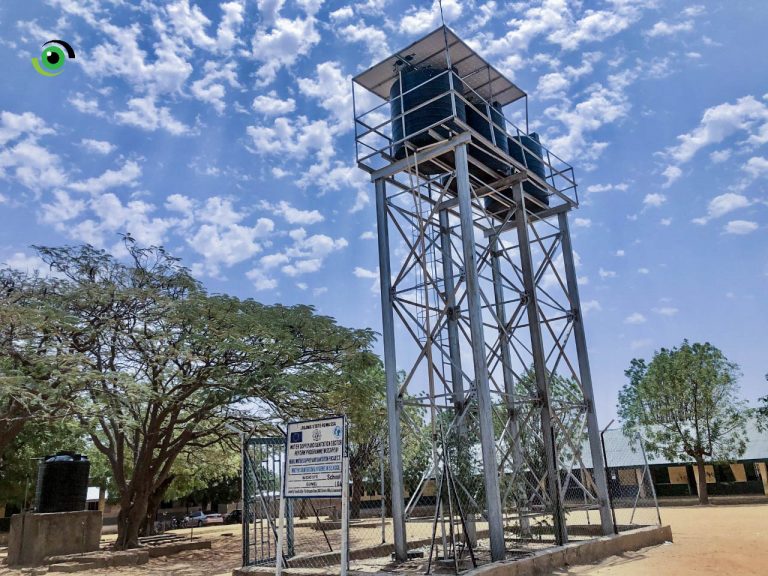
Very insightful piece. I know an organization that drills boreholes in rural communities and rehabilitates nonfunctional ones. I have a comment though, this ground water is in aquifers and the faster we pump them, the faster they finish. I’ve watched documentaries where Americans talk about how their aquifers are running out of water and they have to look for other ways to get clean water- like desalination.
If Africa has ground water to last 5 years of drought. What happens next? Will we then try desalination? Can we even afford that?